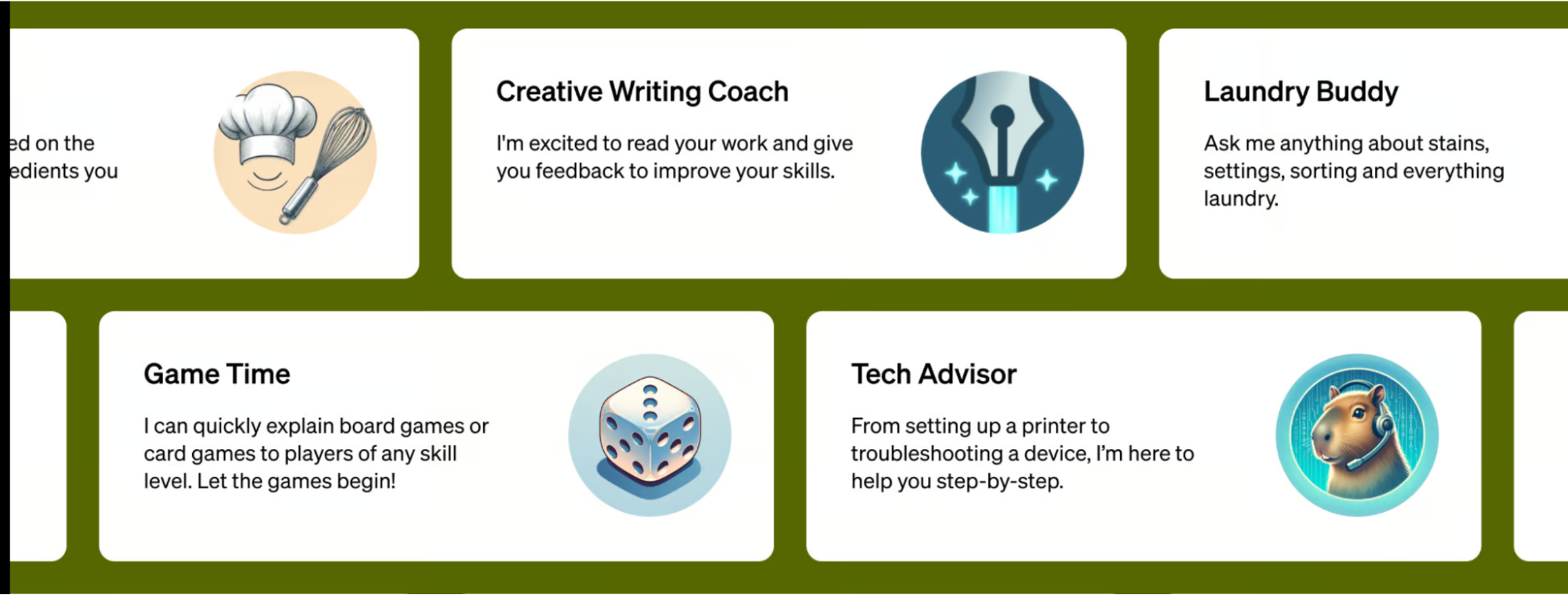course
OpenAI Announces GPTs and ChatGPT Store
Discover the future of AI customization as OpenAI unveils GPTs and the GPT Store. Explore how you can create tailored AI models for specific tasks and learn about the innovative GPT marketplace.
Nov 2023 · 7 min read
Start Your OpenAI Journey Today!
3 hours
14.6K
course
Introduction to ChatGPT
1 hour
199.1K
course
ChatGPT Prompt Engineering for Developers
4 hours
7.2K
See More
RelatedSee MoreSee More
blog
The 10 Best Custom GPTs on the GPT Store
Explore the best Custom GPTs we’ve seen so far on the GPT store, from data science tools to SEO assistants and image generation.
Nisha Arya Ahmed
10 min
blog
OpenAI Announce GPT-4 Turbo With Vision: What We Know So Far
Discover the latest update from OpenAI, GPT-4 Turbo with vision, and its key features, including improved knowledge cutoff, an expanded context window, budget-friendly pricing, and more.
Richie Cotton
7 min
blog
GPT-3 and the Next Generation of AI-Powered Services
How GPT-3 expands the world of possibilities for language tasks—and why it will pave the way for designers to prototype more easily, streamline work for data analysts, enable more robust research, and automate content generation.
Adel Nehme
7 min
tutorial
How to Make Custom ChatGPT Models: 5 Easy Steps to Personalized GPTs
Check out these five simple steps to unlock the full potential of ChatGPT with your own custom GPTs.
Moez Ali
9 min
tutorial
Introduction to ChatGPT Next Web (NextChat)
Learn everything about a versatile open-source application that uses OpenAI and Google AI APIs to provide you with a better user experience. It's available on desktop and browser and can even be privately deployed.
Abid Ali Awan
7 min
code-along
Getting Started with the OpenAI API and ChatGPT
Get an introduction to the OpenAI API and the GPT-3 model.
Richie Cotton


